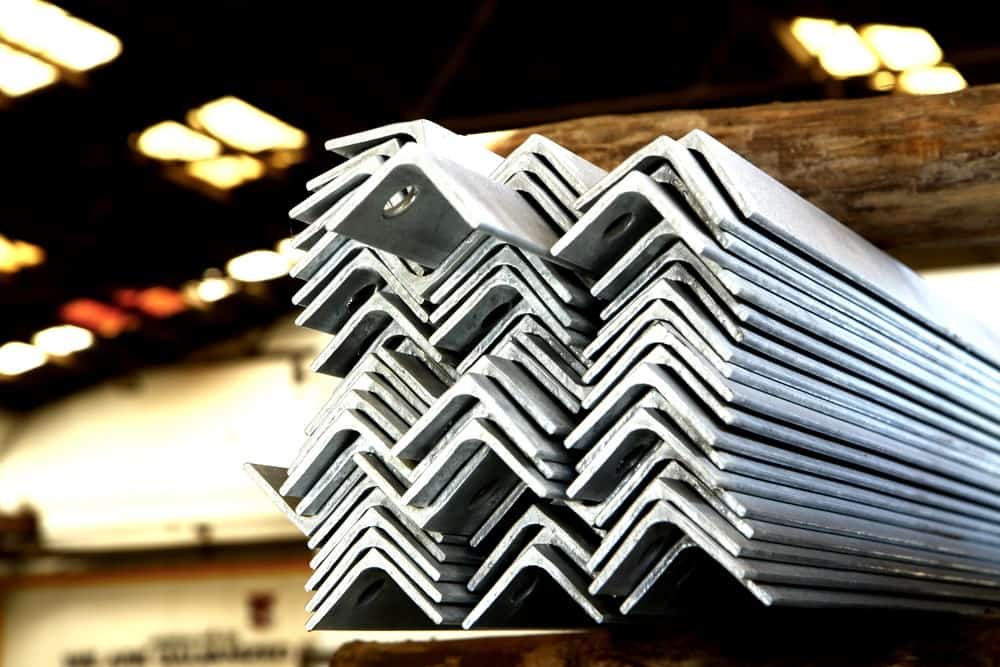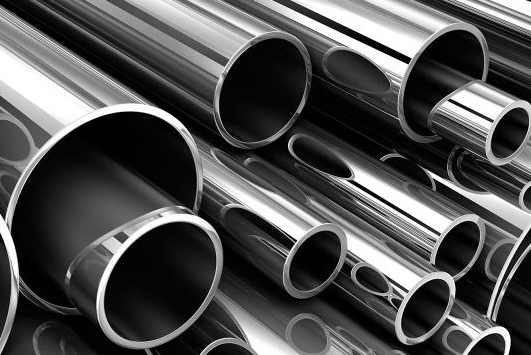Stainless steel contains a variety of different alloying elements, and the type or content of the elements is different, and the characteristics and related applications of this type of stainless steel are also different. Today, let us learn about the various element in stainless steel and their role together!
1. Carbon (C): The carbon content in steel increases, the yield point and tensile strength increase, but the plasticity and impact properties decrease. When the carbon content exceeds 0.23%, the welding performance of the steel deteriorates, so it is used for welding Low-alloy structural steel generally does not contain more than 0.20% carbon. High carbon content will also reduce the atmospheric corrosion resistance of steel, high-carbon steel in the open stockyard is easy to rust; in addition, carbon can increase the cold brittleness and aging sensitivity of steel.
2. Silicon (Si): Silicon is added as a reducing agent and deoxidizer in the steelmaking process, so the killed steel contains 0.15-0.30% silicon. If the silicon content in steel exceeds 0.50-0.60%, silicon is regarded as an alloying element. Silicon can significantly improve the elastic limit, yield point and tensile strength of steel, so it is widely used as spring steel. By adding 1.0-1.2% silicon to quenched and tempered structural steel, the strength can be increased by 15-20%. The combination of silicon and molybdenum, tungsten, chromium, etc., has the effect of improving corrosion resistance and oxidation resistance, and can produce heat-resistant steel. Low carbon steel containing 1-4% silicon has extremely high magnetic permeability and is used as asilicon steel sheet in the electrical industry. An increase in the amount of silicon will reduce the welding performance of steel.
3. Manganese (Mn): In the process of steelmaking, manganese is a good deoxidizer and desulfurizer. The general steel contains 0.30—0.50% manganese. When adding more than 0.70% to carbon steel, it is considered "manganese steel". Compared with ordinary steel, it not only has sufficient toughness, but also has higher strength and hardness, improves the hardenability of steel, and improves the hot workability of steel. For example, the yield point of 16Mn steel is 40% higher than that of A3. Steel containing 11-14% manganese has extremely high wear resistance and is used in excavator buckets, ball mill linings, etc. The increase of manganese content weakens the corrosion resistance of steel and reduces the welding performance.
4. Phosphorus (P): In general, phosphorus is a harmful element in steel, which increases the cold brittleness of steel, deteriorates welding performance, reduces plasticity, and deteriorates cold bending performance. Therefore, the phosphorus content in steel is generally required to be less than 0.045%, and the requirement for high-quality steel is lower.

5. Sulfur (S): Sulfur is also a harmful element under normal circumstances. Make the steel produce hot brittleness, reduce the ductility and toughness of steel, and cause cracks during forging and rolling. Sulfur is also detrimental to welding performance, reducing corrosion resistance. Therefore, the sulfur content is generally required to be less than 0.055%, and the high-quality steel is required to be less than 0.040%. Adding 0.08-0.20% sulfur to steel can improve machinability, usually called free-cutting steel.
6. Chromium (Cr): In structural steel and tool steel, chromium can significantly improve strength, hardness and wear resistance, but at the same time reduce plasticity and toughness. Chromium can improve the oxidation resistance and corrosion resistance of steel, so it is an important alloy element of stainless steel and heat-resistant steel.
7. Nickel (Ni): Nickel can increase the strength of steel while maintaining good plasticity and toughness. Nickel has high corrosion resistance to acids and alkalis, and has rust and heat resistance at high temperatures. However, as nickel is a relatively scarce resource, other alloying elements should be used as much as possible to substitute nickel-chromium steel.
8. Molybdenum (Mo): Molybdenum can refine the grain of steel, improve hardenability and thermal strength, and maintain sufficient strength and creep resistance at high temperatures (long-term stress and deformation at high temperatures, said Creep). The addition of molybdenum to structural steel can improve mechanical properties. It can also suppress the brittleness of alloy steel due to fire. It can improve redness in tool steel.
9. Titanium (Ti): Titanium is a strong deoxidizer in steel. It can make the internal structure of steel compact, refine grain strength; reduce aging sensitivity and cold brittleness. Improve welding performance. Adding appropriate titanium to the chromium 18 nickel 9 austenitic stainless steel can avoid intergranular corrosion.
10. Vanadium (V): Vanadium is an excellent deoxidizer for steel. The addition of 0.5% vanadium to the steel can refine the structure grains and improve the strength and toughness. The carbide formed by vanadium and carbon can improve the resistance to hydrogen corrosion under high temperature and high pressure.
11. Tungsten (W): Tungsten has a high melting point and a large specificity. It is an expensive alloying element. Tungsten and carbon form tungsten carbide, which has high hardness and wear resistance. Adding tungsten to tool steel can significantly improve the red hardness and thermal strength, which can be used as cutting tools and forging dies.

12. Niobium (Nb): Mi can refine the grains and reduce the overheating sensitivity and temper brittleness of steel, and increase the strength, but the plasticity and toughness are reduced. Adding nickel to ordinary low-alloy steel can improve the resistance to atmospheric corrosion and the corrosion resistance of hydrogen, nitrogen and ammonia at high temperatures. Silver can improve soldering performance. Adding eyes to austenitic stainless steel can prevent intergranular corrosion.
13. Cobalt (Co): Cobalt is a rare precious metal, which is mostly used in special steels and alloys, such as hot-strength steel and magnetic materials.
14. Copper (Cu): WISCO uses Daye ore to smelt steel, which often contains copper. Copper can improve strength and toughness, especially atmospheric corrosion performance. The disadvantage is that it is prone to hot brittleness during hot working, and the plasticity is significantly reduced when the copper content exceeds 0.5%. When the copper content is less than 0.50%, it has no effect on weldability.
15. Aluminum (Al): Aluminum is a commonly used deoxidizer in steel. Adding a small amount of aluminum to the steel can refine the grains and improve the impact toughness, such as 08Al steel for deep drawing thin plates. Aluminum also has oxidation resistance and corrosion resistance. The combination of aluminum and chromium and silicon can significantly improve the high-temperature non-skinning performance and high-temperature corrosion resistance of steel. The disadvantage of aluminum is that it affects the hot workability, welding performance and cutting performance of steel.
16. Boron (B): Adding a small amount of boron to the steel can improve the compactness and hot rolling performance of the steel, and increase the strength.
17. Nitrogen (N): Nitrogen can improve the strength, low temperature toughness and weldability of steel, and increase aging sensitivity.
18. Rare earth (Xt): Rare earth elements refer to 15 mae series elements with atomic numbers 57-71 in the periodic table. These elements are all metals, but their oxides are like "earth", so they are customarily called rare earths. Adding rare earths to steel can change the composition, shape, distribution and properties of inclusions in steel, thereby improving various properties of steel, such as toughness, weldability, and cold workability. Adding rare earths to Lizhong steel can improve wear resistance.JMJD is one of the leading stainless steel suppliers and distributors in China. We are equipped with the most professional technical development and manufacturing personnel, able to provide you with high-quality products and services. If you have any questions about stainless steel, welcome to consult and look forward to hearing from you.
JMJD is one of the leading stainless steel suppliers and distributors in China. We are equipped with the most professional technical development and manufacturing personnel, able to provide you with high-quality products and services. If you have any questions about stainless steel, welcome to consult and look forward to hearing from you.